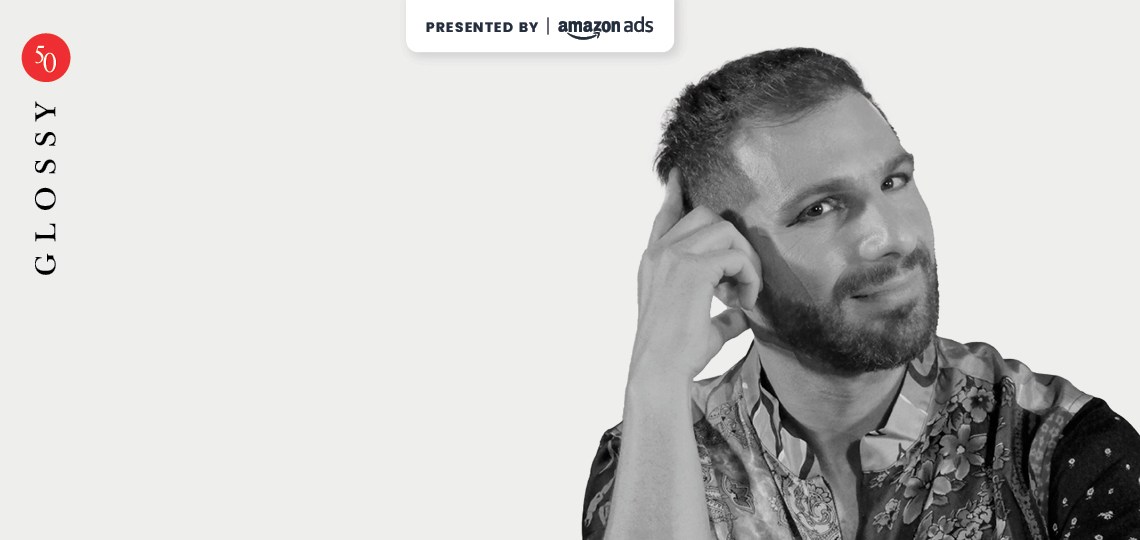The Glossy 50 honors the year’s biggest changemakers across fashion and beauty. More from the series →
The Changemakers: The disruptors driving values-based industry evolution
Ben Barry
Dean of fashion, Parsons School of Design
So much for fashion schools lagging. After years of fashion media reporting outdated teachings at the top fashion schools — particularly due to their lack of focus around designing for extended sizes, prioritizing sustainability and leveraging new technologies — The New School’s Parsons School of Design made a disruptive move in hiring Ben Barry to be its new dean of fashion, effective July 2021.
With more than 15 years under his belt as a fashion educator, researcher and activist, Barry made the jump to NYC-based Parsons from Ryerson University in Toronto, where he was a tenured associate professor of equity, diversity and inclusion, among other roles. There, he taught courses in queer fashion design and design justice, and led research around stigmatized body types in the industry. Now, he’s in charge of “leading and overseeing all areas” of Parsons. Based on his first year on the job and plans moving forward, students from Parsons and its partnering schools will not only be well-equipped to take on fashion post-graduation, but they’ll also be primed to accelerate the industry’s more inclusive direction. They may even take the lead.
How do you define your responsibility as dean of fashion, and how did that play out in year one?
“So much of what Parsons does is about creating design that changes the world. And so, much of my role is centered on asking, ‘Where is fashion going? What role do we want to play in that? And how do we want to impact the world of fashion moving forward?’ In the first year, a big project was to come up with a collective revised vision statement [for the school], and revised purpose and values. We brought all our community together to [focus on] those questions. We did surveys with alumni, faculty and students, as well as working groups with people from different communities within the school. And we decided [to stand for] ‘fashion education where social and climate justice are the standard.’”
Is this as forward among fashion schools as it sounds?
Ad position: web_incontent_pos1
“This is a very active conversation in the fashion industry and in fashion schools. But what’s needed now is to translate that conversation into intentional, concrete and systemic action — and that’s what we’re committed to doing. Establishing this vision allows us to now align all our decision-making for our curriculum and culture around this purpose. We’ve already started: Last year, we brought in new faculty members to bring new knowledge into our community, including on size inclusion and indigenous fashion history and design practices. And we’re developing an entire suite of electives that focus on equity and inclusion. We’re also working with a modeling agency that represents models of all bodies and with disabilities and various gender identities, to ensure our students have the opportunity to work with models reflecting the full panorama of human beauty.
Action is [key], but we want to do it in ways that are thoughtful, slow and sustainable. Our goal is to model these [values] not just for ourselves as a community, but also for other fashion schools. … Fashion’s direction is less about competition and much more about collaboration. We’re only going to transform fashion by doing this together.”
Is fashion ready to embrace change?
“The resistance may have existed 5-10 years ago, but we’re certainly no longer there. As a field, we want change. Many of the brands where our students intern and eventually work are ready for this change. And they’re genuinely looking for students to bring what they’ve learned into their company and are creating space for that.
Education is at the core of creating this change; in fashion school is where we shape the world views and practices of the next generation of creatives. That way, a prioritization of climate and social justice will be at the foundation of operations, not an add-on. My aim is that, in five years, we’re not going to have a director of diversity or a head of sustainability; these [focuses] will be [baked into] the framework of every way a brand operates.”
Ad position: web_incontent_pos2
Are your students embracing the changes you’re bringing to Parsons?
“This is what our students want. They come to Parsons, and to other fashion schools around the world, wanting to engage in fashion in a truly ethical, inclusive and sustainable way. And it’s up to us as educators to not only cultivate that desire, but also to support them in doing that in ways that allow this transformation to take place.”
Click here to see all 2022 Glossy 50 honorees.




